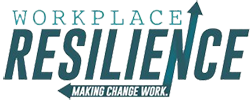 As many of you know, I work 12 hours a week at a clinic as a Mental Health Therapist. I can honestly say that 90% of my work is helping individuals deal with the stress that they are experiencing. That’s when it really hit home with me that there was a real crisis when it comes to work and stress.
As many of you know, I work 12 hours a week at a clinic as a Mental Health Therapist. I can honestly say that 90% of my work is helping individuals deal with the stress that they are experiencing. That’s when it really hit home with me that there was a real crisis when it comes to work and stress.
According to the American Institute of Stress, 40% of workers report that their job is extremely stressful. Up to 80% report that they have experienced stress at some point in their current positions. Stress appears to be a real workplace problem that results in productivity loss, health issues and more.
However, I would like to look at this from another angle. We are always viewing stress from a negative perspective. The truth is that stress can actually serve a positive purpose in life.
Stress helps you understand what is important to you.
Years ago, I was working in a job that was no longer making me happy. Each day I drove to work, I would try to remind myself why I was so lucky to have this job. I would attempt to rationalize how I was in the right place. Yet, I was constantly stressed and anxious.
The bottom line was that I was miserable in that position. I knew in my heart that I didn’t belong there, but I was afraid of a change and to go somewhere else. I was settling so I could stay safe and in my comfort zone. But this decision made me feel uncomfortably stressed. Listening to my stress, I realized that I was not living true to my values. I value taking risks and I was doing the opposite. My actions and my values were not aligned. In the end, It was this realization that actually propelled me forward to eventually find the right fit for my life.
Stress helps you get things done.
Do you really want to eliminate all the stressors from your life? Well, good luck with that. I’m not a big fan of doing paperwork and I doubt I would get my work completed if I didn’t feel a little bit uncomfortable. I felt that twinge in my stomach yesterday that signals stress and it pushed me to get this blog written. I felt that twinge of stress this afternoon and it pushed me forward to finally call the car dealership and make an appointment for my car. That stressful feeling really comes in handy when you need to accomplish tasks and make your deadlines.
Stressful situations help you toughen up for future challenges.
No one makes it through life without having some bad things happen. And no one gets through life without having some less than spectacular days. However, stressful, uncomfortable times can build resilience for the future. Experiencing these moments and making it through to the other side, empowers you in life. The next time something stressful and uncomfortable happens, you can remind yourself that you are just becoming more resilient with this experience.
Maybe you need to change your mind set when it comes to stress. Instead of having a negative perspective when it comes to stress, begin to see how it can help you become your best self.










